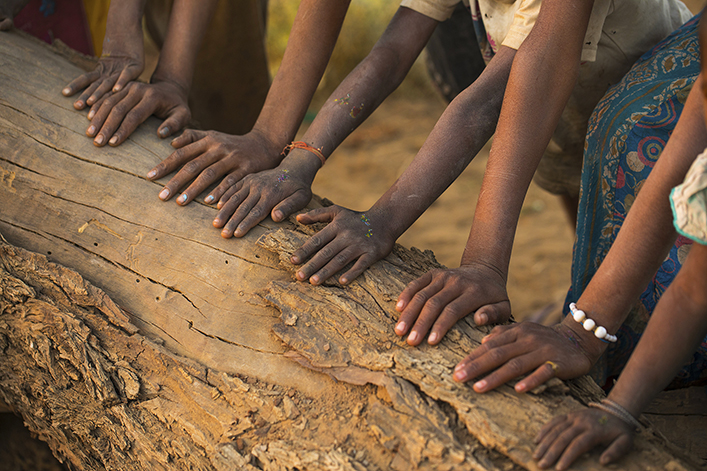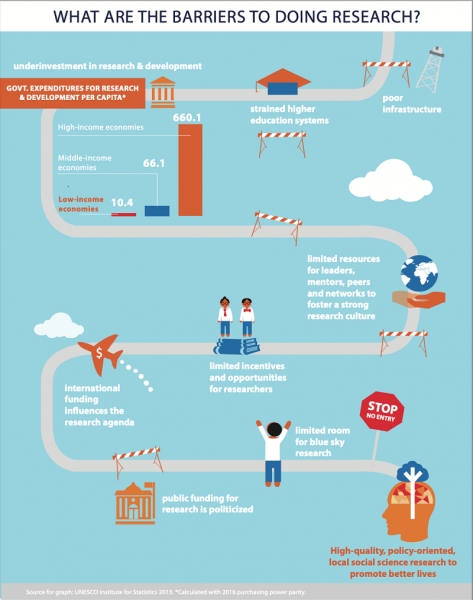
The Method
The DR programme is implemented and developed through a network of Southern 'research on research' scholars spanning 30 countries (early 2021), and is growing. Assessments are completed by adapting the DRA framework, that is, a method for systematically analysing the strengths, weaknesses, challenges, and bottlenecks that affect quality and policy relevant social science research.
The programme is structured in three interrelated steps:
- Implementing DRAs at the national level
- Curating a global dataset and analytical benchmarking of research systems
- Developing practical resources to support action on strengthening research systems
The programme produces both national and global reports. All datasets will be available in open access, and all outputs will be translated in accessible outreach material to support awareness and action on social science research.
Capacity Building
The programme has the following built-in research capacity strengthening.
1. Workshops and webinars
Through workshops and webinars, National Focal Points (NFPs) are taught how to implement the DRA – a standard and robust methodology to assess research systems.
2. Practical knowledge of a national research system
Through implementing the DRA in their respective countries, NPFs obtain a practical experience and they learn about the status and future of their national research systems, especially in social science.
3. Mentoring
Through pairing each NFP with a mentor, GDN enables NFP access to both explicit and tacit knowledge throughout the 18-month period of DR implementation and possibly beyond.
4. Dissemination and outreach program
Through implementing the dissemination and outreach program, NFPs are connected with national level policymakers and development stakeholders to further strategize their efforts in boosting local production and use of quality academic research for sustainable development policies.
5. Networking
NPFs are ensured with a global networking through having access and connected to other NFPs, mentors, global DR team and technical consultants. This ensures access to information, peer-review, and knowledge sharing, as well as forging further academic relationships even beyond the DR implementation.
6. Publication skills
Venturing into academic publishing and knowledge sharing could be a daunting task for many researchers in developing and transition countries. Through DRA, NFPs have access to an internal peer-review system and step-by-step guidance to academic writing and publishing their research findings to established international peer-reviewed journals.

To support this work, please write to Daniel Fussy.





